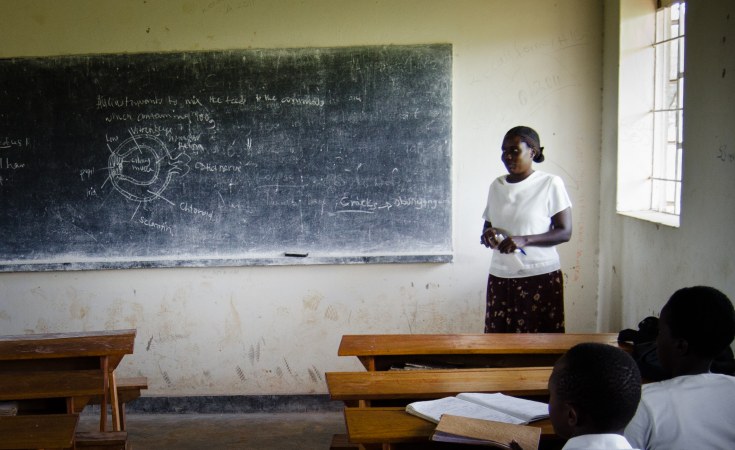The State Minister for Higher Education, John Chrysostom Muyingo has said government is in final stages of presenting to parliament amendments in the Education Act 2008 to ensure parents and guardians enroll al children under their care to school.
"If Uganda is to develop, we need every school going child to be at school but many parents ignore this. The solution is in that law. Very soon we shall be presenting a number of amendments made to it," Muyingo said.
The minister was on Tuesday speaking during the 2nd national Afri-child conference at the Golf course hotel in Kampala.
The conference brought together researchers, practitioners, and policymakers to discuss strategies for scaling up evidence-based child-focused research, and lessons learned to inform policies and programs.
Muyingo said that through the intended amendments in the law, parents will be forced to meet their obligations and enroll all children in schools since government will also be enforcing free education throughout the country.
He said that the amendments will be based on research that has identified the gaps that need to be addressed to ensure education for all in Uganda.
" Uganda is a young and vibrant nation, with over 56% of our population under 18. This means that investing in the well-being of our children is essential for the prosperity and development of our country. We must ensure they have access to quality education, healthcare, and other basic needs to help them grow into responsible and productive citizens,"Muyingo said.
The minister however noted that the country must take a data-driven approach to policy and practice.
"We need to use research evidence to inform our decision-making and to ensure that our policies and procedures are based on the best available information. This is essential to ensure our investments in child well-being are practical and efficient."
Giving a keynote address, Dr. Joseph Muvawala, the Executive Director of National Planning Authority noted that sustainable levels of socio-economic progress need to be anchored in evidence-based planning.
"The need to strengthen capacity for generation and use of evidence in planning and policy development, implementation, monitoring and evaluation confers significant responsibility on the existing research institutions and think tanks to be in position to generate timely, accurate and discernible evidence,"Dr.Muvawala said.
He noted that whereas universities have always been viewed as primary producers of research, there are challenges with regard to dissemination of these research products.
"Traditionally, universities focus on peer-reviewed journals and other purely academic media to disseminate research products, albeit majority of the potent users being outside the academia. This has led to a lot of research done by research organizations and universities remaining on the shelves hence limiting its impact," he noted.
He urged the utilization of the National Research Framework which aims to provide guidance in selecting research priorities that are relevant and address national development challenges, but also provides ways of harmonizing and coordinating research activities including dissemination and research uptake in the country.
Timothy Opobo, the Afri-Child Executive Director said as Uganda continues to grapple with challenges affecting children, many programs and policies that are being developed by the policymakers are not necessarily informed by research.
"And so as Afri-Child center, we came up with a program to try to address this gap. We developed two programs. One program focuses on researchers, especially within our university institutions. We developed a two-year training program, where we train researchers who are actually academics or lecturers, to be able to do child-focused research or research on issues to do with children. So, that program is one of the programs that we are graduating today,"Opobo said.
He said that the second program targets those who use research including the policymakers, the practitioners and those who implement programs for children "because a lot of research when that is done, remains on the shelves."


